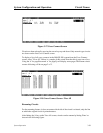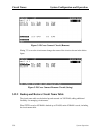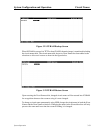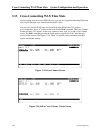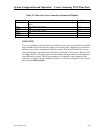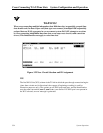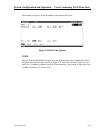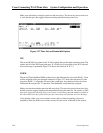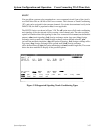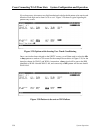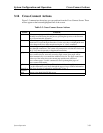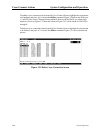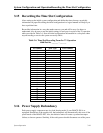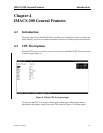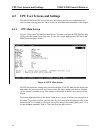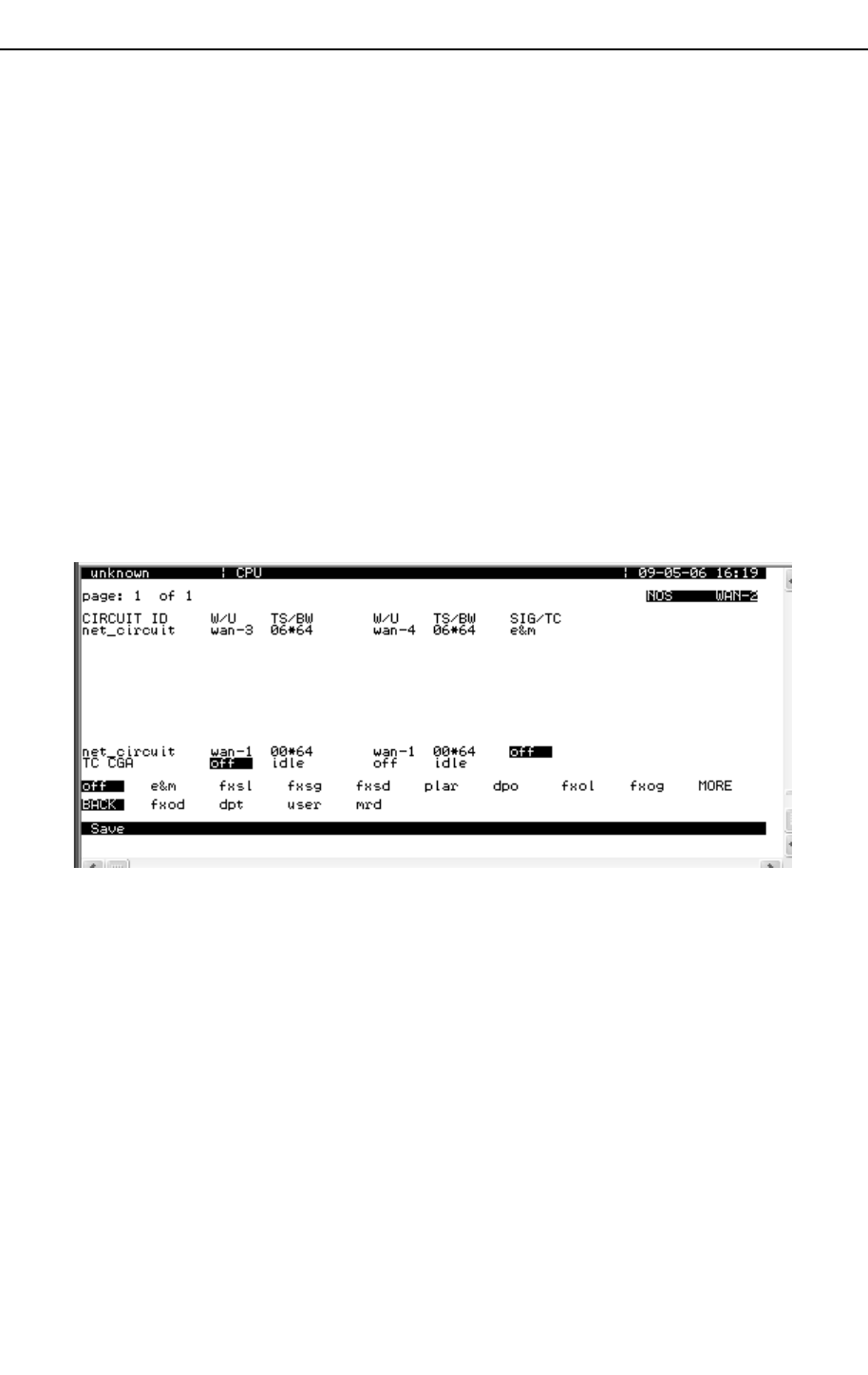
System Operation 3-37
System Configuration and Operation Cross-Connecting WAN Time Slots
SIG/TC
You can define a pattern to be transmitted on a cross-connected circuit if one of the circuit’s
two WAN links fails on a WAN to WAN cross-connect. This is known as Trunk Conditioning
(TC), and can be assigned for the transport channels. For circuits that terminate locally in the
IMACS-200, the field is populated as n/a, for not applicable.
The SIG/TC choices are shown in Figure 3-28. The off option turns off all trunk conditioning
and signaling off for the selected circuit, creating a clear-channel path. The other available
options will enable robbed-bit signaling for the cross-connected circuit: user (user-defined bit
pattern), e&m (trunk signaling), fxsl (foreign exchange station-loop-start), fxsg (foreign
exchange station ground-start), fxsd (foreign exchange station-defined network), plar
(private-line automatic ringdown), dpo (dial-pulse originating), fxol (foreign exchange office
loop-start), fxog (foreign exchange office ground-start), fxod (foreign exchange
office-defined network), dpt (dial-pulse terminating) and mrd (manual ringdown). The screen
below has been modified to display all the possible options.
Figure 3-28.Supported Signaling Trunk Conditioning Types



